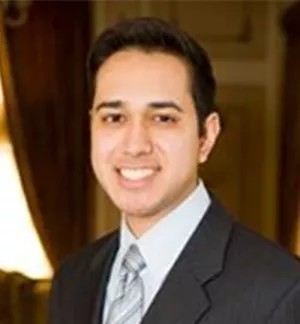Indian Prime Minister Narendra Modi traveled to Washington last week, making his fourth trip to the United States since taking office just two years ago.
His inaugural visit in September 2014 centered on strengthening ties with the Obama Administration and the Indian diaspora. His second trip in September 2015 to Silicon Valley was aimed at advancing India’s economic and development goals by building bridges with the world’s technology and innovation capital. Earlier this year, he returned to Washington to attend President Obama’s Nuclear Security Summit along with several other heads of state. It was his sixth meeting with the president in twenty-four months. The growing expansion of U.S.-India relations in recent months is often attributed to the “personal chemistry” and strong rapport the two leaders have established with one another.
Although President Obama once again welcomed the Indian leader to the White House last week where several significant agreements were announced, Prime Minister Modi’s visit to Washington this time around had an entirely different focus: the United States Congress.
While Prime Minister Modi has engaged with legislative branch leaders in various capacities during all his prior visits to the United States, this was the first one dedicated almost entirely to Congress.
The itinerary for his two-day visit was revealing. After meeting with President Obama at the White House and attending a dinner hosted by the US-India Business Council, the rest of Prime Minister Modi’s trip was spent on Capitol Hill.
The Indian premier met with Congressional leadership and then addressed a joint session of Congress on June 8, an honor traditionally reserved for America’s closest friends and allies. Speaker of the House Paul Ryan extended the invitation to Prime Minister Modi earlier this month. Mr. Modi became the first foreign leader to address a joint session since Mr. Ryan assumed the Speaker’s gavel last year.
The enthusiastic reception Prime Minister Modi received from legislators on Capitol Hill underscored the popularity he enjoys within Congress. Sustained applause and loud cheers greeted his arrival into the House chamber where the Indian leader delivered his remarks. Dozens of senior lawmakers from both parties escorted him to the dais.
Members of Congress and those seated in the public galleries gave Prime Minister nine standing ovations during his remarks and interrupted him 72 times with applause, according to some estimates. After his address, several lawmakers swarmed the Indian leader for autographs.
After the speech, Speaker Ryan hosted a luncheon for the prime minister, which was followed by a reception co-hosted by the House and Senate foreign affairs committees and the India caucuses from both chambers for prominent members of the Indian-American community. The prime minister left for Mexico shortly thereafter.
Mr. Modi’s focus on Capitol Hill is unsurprising. At a time when hyper partisanship has infected virtually every major foreign policy issue in the legislative branch, the United States’ relationship with India remains a top legislative priority for both parties. Over the past decade, Congress has emerged as a reliable champion of the U.S.-India partnership, playing a central role in moving it forward on a slate of key strategic, economic and defense issues.
The House of Representatives recently approved an amendment to the National Defense Authorization Act (NDAA), which seeks to bolster defense ties with India. Another bill under consideration directs the Secretary of State to formulate a plan to help facilitate India’s entry into the Asia-Pacific Economic Cooperation (APEC) forum. The House of Representatives is currently considering legislation that would designate India a “Special Global Partner,” which would confer upon it a status enjoyed by no other country in the world.
India recently found itself more closely aligned with Capitol Hill than with the Obama Administration. Just weeks ago, Congress effectively blocked the sale of F-16 fighter to jets to Pakistan by insisting Islamabad pay for the fleet itself rather than buy the aircraft at a subsidized price. Lawmakers in both parties not only invoked Pakistan’s lack of progress in combating terrorism to justify conditioning the transaction, but also cited the damage the proposed sale could have on Washington’s ties with New Delhi if the deal went forward. While the circumstances surrounding the fighter jets continue to evolve, the episode is a powerful reminder of the strong bipartisan support India enjoys on Capitol Hill.
Prime Minister expressly recognized this salient fact during his address, characterizing Congress as the “compass” guiding U.S.-India relations through the “cycles of elections and transitions” in both countries.
It is important to recognize, however, that this support is not unconditional or all encompassing. For the past several years, Congress has raised concerns about a host of issues pertaining to India, including, for example, its relationship with Iran, its trade policies, its climate change record, and its commitment to protecting intellectual property rights.
Many of the irritants that continue to vex the bilateral relationship have originated within Congress, with some lawmakers harboring doubts about Mr. Modi himself, particularly regarding his human rights record. At recent House and Senate hearings, lawmakers raised significant concerns about whether the persecution of religious minorities has gotten worse in India since the new prime minister took office.
But at the same time, none of these issues have diluted Congressional support for strong U.S.-India ties or have meaningfully arrested the upward trajectory of the bilateral relationship. During his address, Prime Minister lauded Congress for helping turn “barriers into bridges of friendship.”
Although a legislative body comprised of more than 535 members will inevitably reflect a multiplicity of opinions and perspectives on any one given issue, overall sentiment toward the U.S.-India partnership remains positive. Viewed against this backdrop, Prime Minister Modi’s focus on Capitol Hill during his upcoming visit was natural, if not necessary.
Each one of Prime Minister Modi’s trips to the United States has carried with it a particular objective. His visit last week helps strengthen links with an important institutional stakeholder in the U.S.-India relationship just months ahead of a U.S. presidential election. Although the fundamental course and character of bilateral ties is unlikely to change regardless of who wins the race for the White House, Prime Minister Modi was wise to consolidate ties with Capitol Hill.
Desai, Ronak. “Why Prime Minister Modi Called On Congress.” Forbes, June 13, 2016


